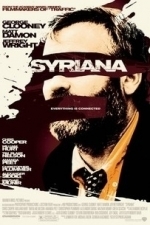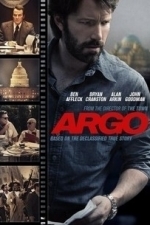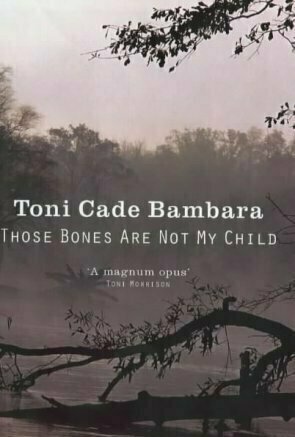
Navitel Navigator Tajikistan
Navigation and Travel
App
Navitel Navigator is a precise offline navigation with free geosocial services and detailed map of...

Navitel Navigator
Navigation and Travel
App
Navitel Navigator is a precise offline navigation with free geosocial services and detailed maps of...
Gareth von Kallenbach (980 KP) rated Syriana (2005) in Movies
Aug 14, 2019
It is a tenuous situation where buyer and seller are wary of one another and at times regard the other as a necessary evil. The money paid for the oil has made suppliers and handlers rich and powerful, but many on the outside of this privileged circle believe that greed has caused both sides to lose focus on what is most important for the people of their nations.
In the film Syriana viewers follow the paths of different people from various walks of life who for the most part do not know one another, yet are all linked by the same cause, oil.
There is the C.I.A. agent Bob Barnes (George Clooney), who spends time in locales such as Iran and Beirut eliminating threats to national security.
A lawyer, (Jeffrey Wright), who is caught in the middle as he attempts to find, and if need be eliminate damaging material that can prevent a pending merger between two oil companies.
There is the grieving energy analyst Bryan Woodman (Matt Damon), who deals with his loss by siding up with a powerful Prince, (Alexander Siddig), even at the alienation of his family.
There is also a displaced Pakistani worker who after losing his job when a Chinese company acquires the refinery where he worked, falls in with a group of radicals with a militant agenda.
The above is just a small sampling of the characters as there are numerous business, political, and Middle Eastern citizens who all play very prominent parts in the story.
The main focus of the film is not only to illustrate the connectivity between the characters but to show how politics and big business influence policy in oil rich nations and how through secret deals, political intrigue, and treachery policy in and towards the same oil producing nations are set into place and maintained.
While this is not much of a shock to people who follow the news, it is the way that director Stephen Gaghan uses ordinary and in some ways unremarkable people to tell the story and how it affects those who deal with oil.
Even those who are supposed the big players are often simply being played by forces outside their control in a world where reality and perceptions are often miles apart. The complex nature of the story is actually a model of simplicity as cause and effect, as well as the ability of big business to influence lawmakers is what drives the film.
The cast is strong especially Clooney and Siddig who make their characters sympathetic while at the same time captivating. The contrast of the men who are a Prince and an agent, yet whose destinies often cause them to walk along the same paths is amazing.
Syriana is an amazing film that is so complex in its simplicity. The basic message is very clear, yet the layers that must be uncovered like a tangled web of lies in telling the story is a far reaching journey that will shock and anger most viewers.
Some may find fault with a so called liberal agenda to the film, but politics aside, Syriana is a very captivating and entertaining film that makes you think.

RocketRoute FlightPlan
Weather and Navigation
App
RocketRoute combines Worldwide Flight Planning and In-Flight Navigation in one amazing iPad and...

Bluee Free International Calls
Social Networking and Productivity
App
Bluee - International Calls and SMS App • Earn UNLIMITED FREE CREDITS and CALL FOR FREE (no...

Healthy Food Recipes & Home Recipe For Christmas
Food & Drink and Health & Fitness
App
*** Download the App and Win Gifts at NewYear **** **Best Smart Nutrition Food Recipes App...
Gareth von Kallenbach (980 KP) rated Argo (2012) in Movies
Aug 7, 2019
Director and star Ben Affleck has brought a new side to the story to light in the form of his new film “Argo”, which is based upon true events which have recently become declassified. The story centers around six workers of the embassy in Tehran, who fled the chaos when a disgruntled mob stormed the embassy walls. At that time it was unheard of for an embassy to be occupied as they host country and internal security were thought to of been more than adequate protection.
However for a country in a state of revolution, much less one that was extremely upset with America’s refusal to return the deposed Shah to face trial, security from the local populace was not available when the unthinkable happened.
After being turned away by the British and New Zealand embassies, the six escapees find refuge in the residence of the Canadian ambassador Ken Taylor (Victor Garber), who refuses to turn them away despite the volatile political situation harboring them would create should they ever be discovered.
On the other side of the world, C.I.A. Director Jack O’Donnell (Bryan Cranston), and his staff are desperately looking for a way to retrieve not only the Americans held hostage but also the six individuals currently being sheltered by the Canadian ambassador.
With few viable options available, save for the longshot of trying to get the refugees to bike through 300 miles of winter and soldier laden roads to the Turkish border, Tony Mendez (Affleck), is brought in to find other options.
One evening, Tony gets the idea to go to Iran posing as a Canadian filmmaker on a location scouting trip for an upcoming film. His plan is to pass the refugees off as part of his crew thanks to newly issued passports from the Canadian government.
In order to add validity to his plan, Tony recruits award-winning makeup artist John Chambers (John Goodman), and producer Lester Siegel (Alan Arkin), to help establish the necessary cover for the operation.
Soon Tony, John, and Lester have obtained a script for science fiction film named “Argo”, and the use the Hollywood trades and publicity machine to establish their back story of their production company and film project.
With time running down, Tony must venture alone to Tehran to meet with and prepare the refugees for extraction as well as firming up their cover with the local Iranian authorities.
What follows is a tense political thriller that is extremely well performed and captivating throughout. What really impressed me about the film was that Affleck expertly paced it and refrain from using such overused stereotypes such as car chases, fight sequences, and love scenes to tell the story.
The cast is exceptionally good all around and the film does a good job capturing the look and the atmosphere of the situation without ever becoming preachy and taking extreme political stances. Instead the focus is on real people caught in an extraordinary situation from which they were unprepared, and the extraordinary measures taken by good people in the United States and Canada who stepped up and did the right thing regardless of the cost to them personally or politically.
“Argo”, was an extremely pleasant surprise in one of the most enjoyable films I have seen this year. While I understand it would not be for everyone, I would not be surprised to see the film get a few Oscar nods come awards season as they would be in my opinion well deserved.
Hadley (567 KP) rated Those Bones Are Not My Child in Books
Nov 12, 2019
Bambara writes not in a normal narrative - - - just telling a story from specific viewpoints, but she often breaks off into smash poetry to depict a character's state-of-mind, which, sometimes can be off putting for the reader, breaking the flow of the story. Yet, the use of smash poetry combined with the era and the heart breaking subject at hand, separates Those Bones Are Not My Child from every True Crime book I have ever read. But a note for fans of True Crime, this story is from the view point of the victims' families and the search they went through to try and catch the murderer(s), unlike most TC books, which follow the police through the investigation leading to, usually, the capture of the perpetrator. From living in Atlanta during the time of the murders, Bambara was able to reconstruct the life of a black family in 1980's Georgia, while focusing on the effect these terrible crimes had on the surrounding community. Bambara did an amazing job on what most writers cannot.
The amount of characters, specifically the fictional ones, are very well created. She describes just enough to give readers the ability to tell them apart, showing every now and then from their own viewpoints. Out of all the characters, I came to really like Zala's two other children: Kenti and Kofi. One particular scene shows the strain of Sonny's disappearance on their family: " Zala parked the comb again and sat back. 'Listen, you two.' Kofi dropped down onto his knees. 'The police and the newspapers don't know what the hell is going on, so they feel stupid, because they're supposed to know, they're trained to know, they're paid to know. It's their job. Understand? But it's hard for grown-ups to admit they're stupid, especially if they're professionals like police and reporters. So they blame the children. Or they ignore them and fill up the papers with the hostages in Iran. Understand? And now... Jesus... they've got people calling those kids juvenile delinquents.'
'Don't cry.' Kenti tried to lean into her lap and got pushed away.
'They don't know a damn thing and they act like they don't want to know. So they blame the kids 'cause they can't speak up for themselves. They say the kids had no business being outdoors, getting themselves in trouble.'
'You let us go outdoors.'
'Of course I do, baby. We go lots of places, 'cause a lot of people fought hard for our right to go any damn where we please. But when the children go out like they've a right to and some maniac grabs them, then it's the children's fault or the parents who should've been watching every minute, like we don't have to work like dogs just to put food on the table.'
Kofi walked on his knees towards the bed, but he didn't lean on her like he wanted 'cause she might push him away. So he just put his hand on the mattress next to hers."
During the Atlanta Child Murders, victims were random, except for that they were children from the same neighborhood, and they were African-American. At first, police didn't believe a serial murderer was going around abducting children, but rather that 'poor, broken' families were killing their own. In the Prologue, Bambara shows that the victims' families and private detectives came up with more ideas of the motive than the police did:
" White cops taking license in Black neighborhoods.
The Klan and other Nazi thugs on the rampage.
Diabolical scientists experimenting on Third World people.
Demonic cults engaging in human sacrifices.
A 'Nam vet unable to make the transition.
UFO aliens conducting exploratory surgery.
Whites avenging Dewey Baugus, a white youth beaten to death in spring '79, allegedly by Black youths.
Parents of a raped child running amok with 'justice.'
Porno filmmakers doing snuff flicks for entertainment.
A band of child molesters covering their tracks.
New drug forces killing the young (unwitting?) couriers of the old in a bid for turf.
Unreconstructed peckerwoods trying to topple the Black administration.
Plantation kidnappers of slave labor issuing the pink slip.
White mercenaries using Black targets to train death squadrons for overseas jobs and for domestic wars to come. "
All of these theories are explored with evidence in Those Bones Are Not My Child. One scene in Part III, Zala's cop friend, B.J. shows up to her house to tell her to stop bringing attention to the investigation, " 'That Eubanks woman - - - your husband's friend? - - - she said you were bringing in the TV networks to blow the case open. I thought we had an agreement to keep each other informed. This morning I find out through the grapevine that you parents got a medium stashed in a hotel here in town, some woman who's been making headlines up north with cases that supposedly have the authorities stumped. If you knew how much work has been done on this case - - - no, listen, don't interrupt me. Then I find out - - - and not from you - - - that some of you parents are planning to tour the country cracking on the investigation. That's not too smart. And you should have told me.' " These two may have been fictional characters, but in Bambara's Acknowledgments, she states that all scenarios were true, and that she made B.J. to tell about the actual police officers who were involved with the investigation.
The tension between the police and the public is felt throughout the entire story. Despite all of the work the citizen task force put in, police arrested a man named Wayne Williams for the murder of two adult victims (who, due to their mental age, which was stated to be that of children, were placed on the victims' list of the Atlanta Child Murders): " Wayne Williams, charged with the murder of twenty-seven-year-old Nathaniel Cater and implicated in the murder of the other adults and children on the official list..." Zala, having worked for almost a year at the STOP offices, she, along with most of the community, doubt that Williams was a lone killer or even the killer at all. Williams never stood trial for the childrens' murders, but the police informed the public that he did it, case closed - - - although, after Williams' arrest, children were still being abducted and their bodies were still being found. Even after Williams' trial and the guilty verdict for two adult victims, some people stuck around to continue to investigate and claim Williams a 'scapegoat' of politics: " There were still pockets of interest and people who wouldn't let the case go. James Baldwin had been coming to town off and on; a book was rumored. Sondra O'Neale, the Emory University professor, hadn't abandoned her research, either. From time to time, TV and movie types were in the city poking around for an angle. Camille Bell was moving to Tallahassee to write up the case from the point of view of the STOP committee. The vets had taken over The Call now that Speaker was working full-time with the Central American Committee. The Revolutionary Communist Party kept running pieces on the case in the Revolutionary Worker. Whenever Abby Mann sent down a point man for his proposed TV docudrama, the Atlanta officials and civil rights leaders would go off the deep end. " At the end of it all, the questions still remain: did Williams kill all of those children by himself? Was he part of a pornographic cult that killed the children? Or is Williams completely innocent, and the murderer(s) are still out there? In Those Bones Are Not My Child, I guarantee you will be left questioning if the police were right.
All in all, the writing transitions can become confusing sometimes, especially the interludes of smash poetry, but I highly recommend this book to people who like the True Crime genre, especially of any interest in this specific case.


